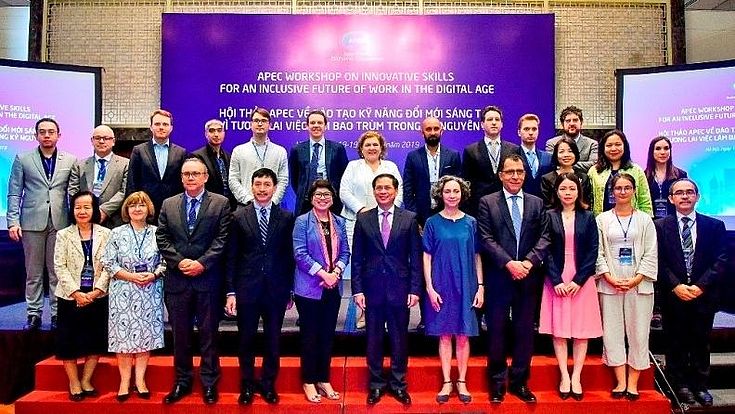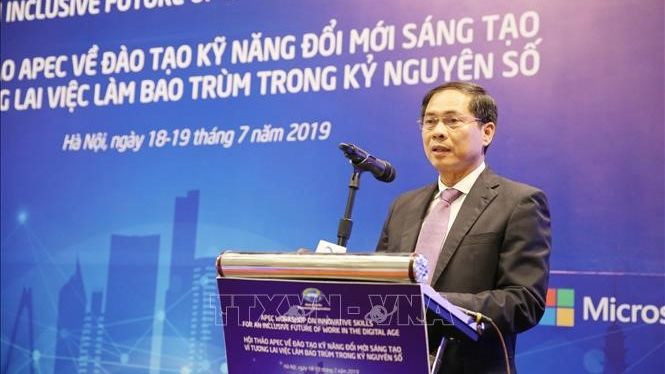Hanns Seidel Foundation promotes inclusive work in the digital age
APEC Workshop on Innovative Skills for an Inclusive Future of Work in the Digital Age
Representatives of the member countries of APEC and experts came together to discuss the future of work in the Digital Age
HSF
Digital Age, started by Industry 4.0, is a development that highly affects every country and its economy and further progress. Therefore, it strongly shapes the nature of work and brings both new opportunities and new risks for the future.
Megatrends are changing and increasing the skills needed to succeed in the future world of work. Those trends are Globalisation, Technological Chance and Demographic Change. World economy is integrated now more than ever, vulnerability of some workers is increasing, new technologies develop rapidly, new forms of work emerge, working-age population is expected to increase.
Artificial Intelligence (AI) brings both challenges and benefits for Asian countries. There is a risk that underserved groups do not participate in the benefits or education struggles to keep pace with evolving skill needs. Many jobs are at high risk of automation.
Therefore, to harness the potential benefits and to mitigate the risks of AI for jobs in Asia, innovative approaches to tackle these challenges are vital, to ensure positive impacts of AI on worker productivity and incomes.
To adapt to this rapid change and to ensure job growth and maintenance, new skills and forms of work organisation will need to be introduced. Skill gaps and mismatches, new demands for Human Capital and reforming education as well as inclusive and quality education are new challenges associated with Digital Age, which must be taken into account to ensure inclusive and innovative growth.
During the workshop, experts and participants had the chance to exchange views, approaches, best practices and experiences of different countries such as Russia, Singapore, Indonesia, Thailand, Hong Kong or Vietnam, to address Digital Age and Industry 4.0.
Mr. Bui Thanh Son, First Vice Minister of Foreign Affairs Vietnam, about the importance of preparing for fundamental changes
HSF
Participants emphasized the importance of leaving no one behind, especially during times of great change. Active labor market policies and global partnership are crucial for an inclusive future of work and for an inclusive and innovative growth. Therefore, transforming education and training, capacity building for entrepreneurs and developing a comprehensive approach on innovative skills is crucial for an inclusive future of work.
The common denominator for the upcoming challenges as well as opportunities is lifelong learning. The future of work brings uncertainty for workers. APEC will play an important role in helping all their members navigate these changes and will promote an inclusive future of work by strengthening partnerships, regional dialogues and knowledge sharing as well as focusing on social protection and skills development and training.
Mr. Bui Thanh Son, First Vice Minister of Foreign Affairs of Vietnam also emphasized the importance of inclusive growth and underlined in particular innovative skills development, an human centered approach and the investment in Human Capital to match the needs of the labour market.


